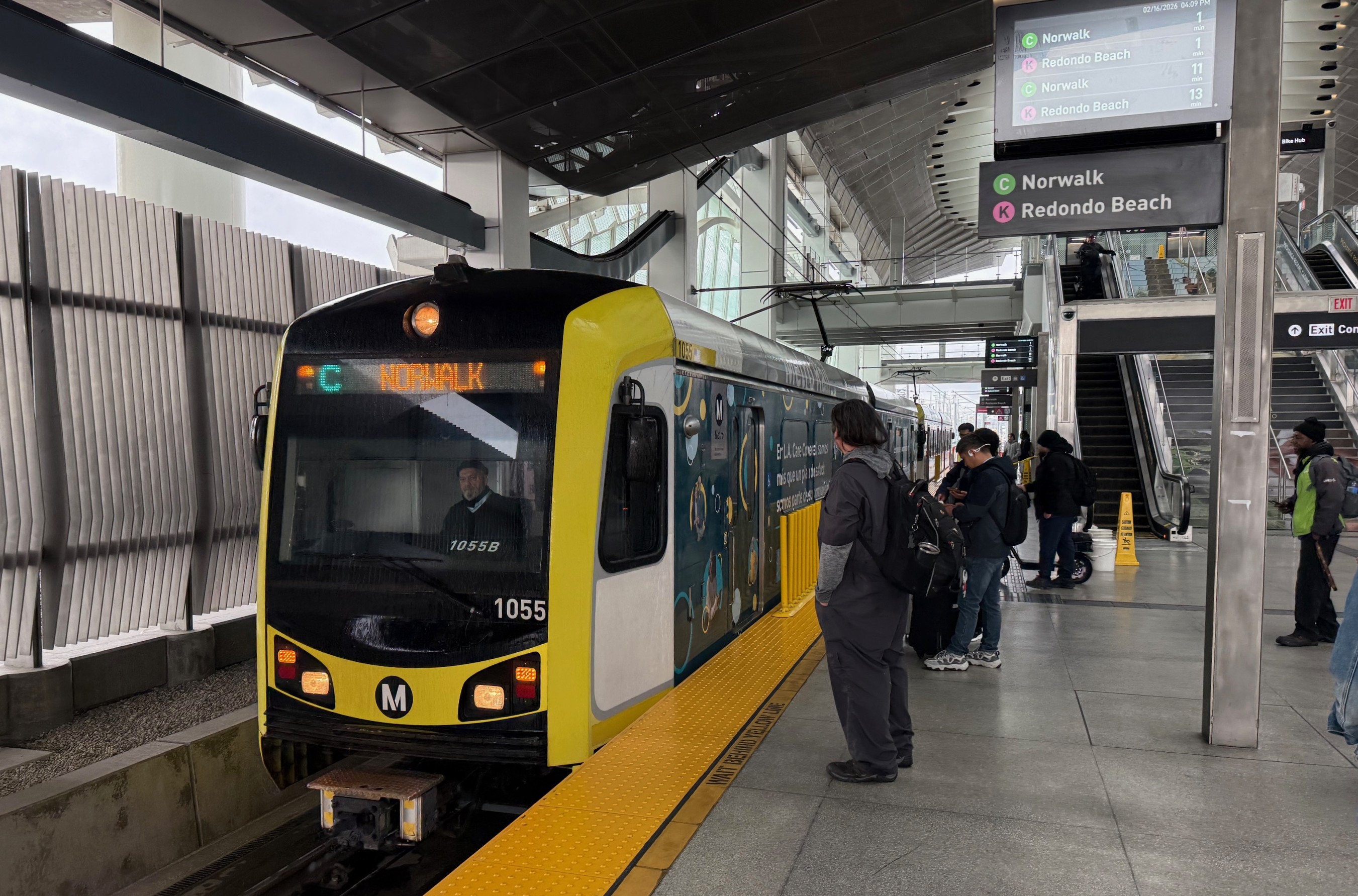![LA's Mobility Plan 2035 Image via DCP [PDF]](https://lede-admin.la.streetsblog.org/wp-content/uploads/sites/50/2015/05/MobilityPlan2035cover15Aprdraft.png?w=622)
The Los Angeles City Planning Commission approved a series of "modest" amendments to the city's multi-modal Mobility Plan 2035. Commissioners uniformly praised the plan, calling it "forward-thinking" and "multi-faceted", before approving it by a 7-0 vote.
Mobility Plan 2035 is the transportation element of the City of Los Angeles' General Plan. Mobility Plan 2035, while not going quite far enough for some livability advocates, plans network improvements for driving, transit, bicycling and walking. It also adopts Vision Zero as citywide policy.
The Mobility Plan was first approved by the same commission last May. It was then amended slightly during the subsequent City Council approval processes. Under a legal challenge, the council rescinded the amendments and re-approved the plan last month.
Mobility Plan amendments [PDF] approved today were "provisions related to equity, Council oversight, public safety, community input, and flexibility in implementation, as well as technical corrections and language cleanups related to nomenclature and map corrections." There are additional hostile amendments proposed where Councilmembers are pushing to remove planned bike facilities, but those will not be heard until at least January.
Public testimony today in support of the plan included T.R.U.S.T South L.A., Los Angeles Walks, AARP, FAST, the L.A. County Bicycle Coalition., and others.
Anti-Mobility Plan public testimony included only Fix the City and the Reason Foundation. Fix the City board member Laura Lake announced that, yesterday, her organization filed a second lawsuit against the plan. According to Fix the City's website, the new lawsuit alleges that City Council missed an August deadline to pass an amended plan back to the Planning Commission, so the plan is therefore deemed to be denied. Fix the City asserts that the council violated the law in its recent "improper" rescind/re-approval process.
If Fix the City's legal challenge is determined to be correct, today's re-approval by the commission hopefully lays the initial step in the groundwork for a challenge-proof approval process. The next steps in that process would be mayoral approval, council committee approval, then full council approval.






